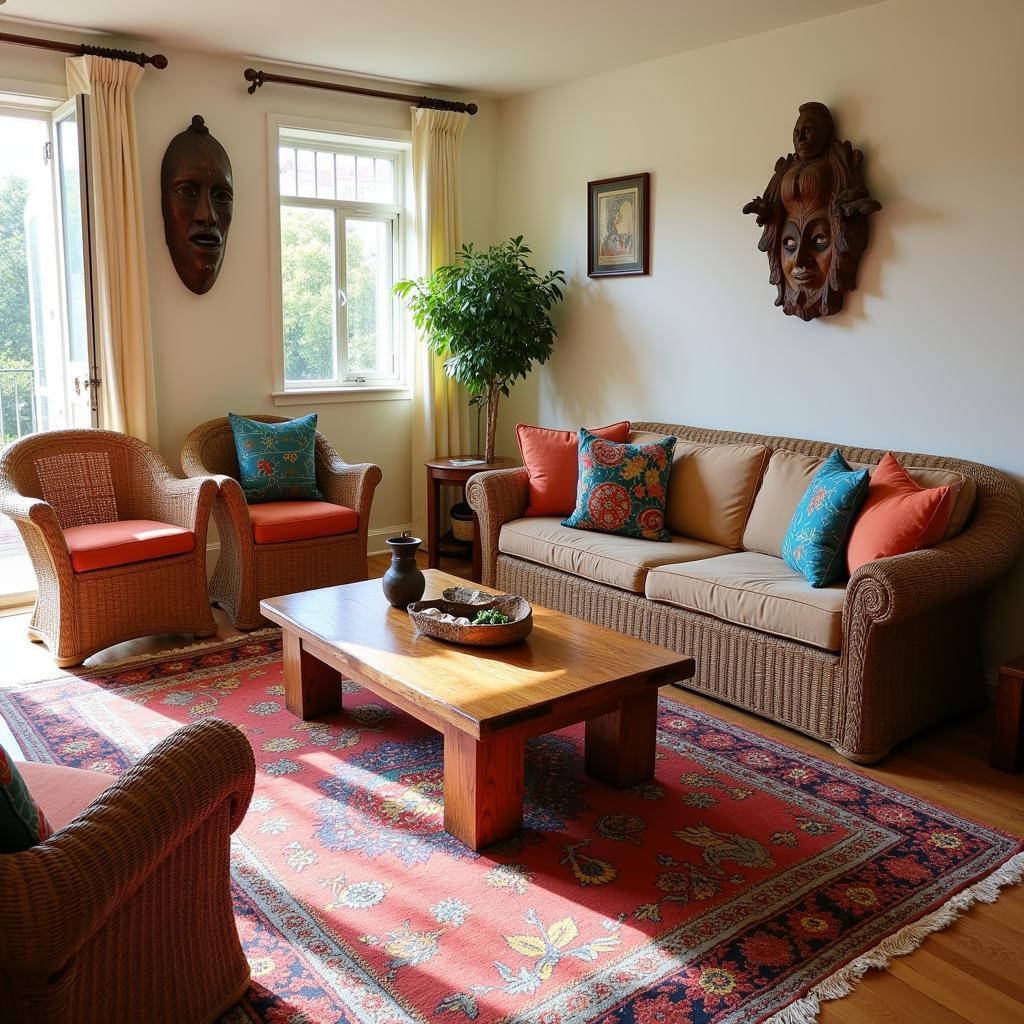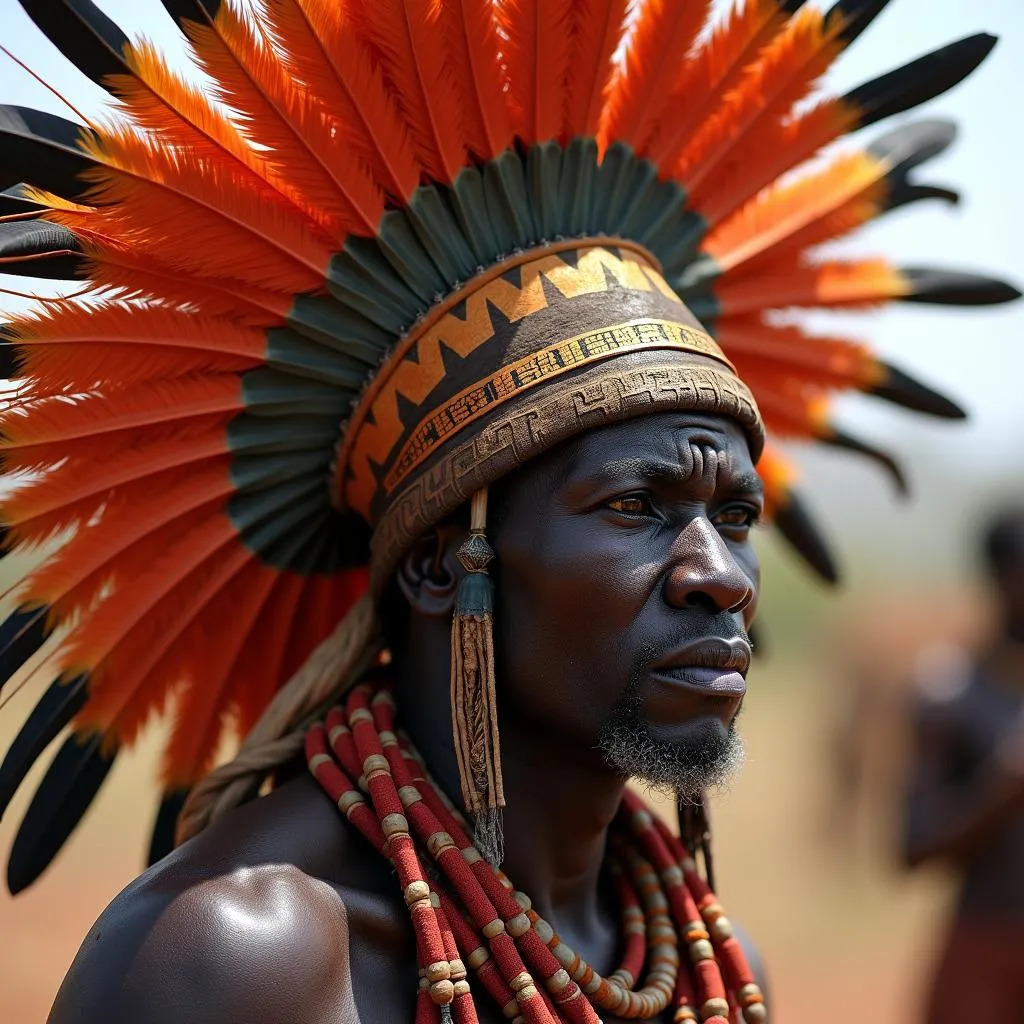African Dresses for Kids Boys: A Colorful Celebration of Culture
African culture is vibrant, diverse, and deeply rooted in tradition. This is beautifully reflected in the clothing worn by children, especially boys. Dresses for African boys are more than just garments; they are expressions of identity, pride, and connection to their heritage.
A Tapestry of Styles and Fabrics
The diversity of African countries is mirrored in the vast array of boys’ clothing styles. From the vibrant and colorful prints of West Africa to the intricate patterns and designs of East Africa, each region boasts its unique aesthetic.
Here are some popular styles you’ll find across the continent:
- Buba: This loose-fitting, long-sleeved tunic is common in West Africa. It’s often made of bright Ankara fabrics, known for their bold patterns and vibrant colors.
- Dashiki: A staple in many African countries, the dashiki is a colorful, short-sleeved shirt, traditionally worn for special occasions. It’s often made from cotton, linen, or silk.
- Kanga: This rectangular piece of cloth is worn by both men and women in East Africa. It’s a versatile garment that can be used as a wrap, a skirt, or even a head covering.
- Jubba: Found in countries like Somalia and Kenya, the jubba is a long, flowing robe worn over pants. It’s usually made from silk or cotton and often adorned with intricate embroidery.
The fabrics used for these garments are just as diverse as the styles themselves. You’ll find everything from traditional handwoven cloths to modern printed fabrics like Ankara and Kitenge.
More Than Just Clothes: Cultural Significance
African dresses for boys are more than just fashion; they symbolize a deep connection to the past, present, and future.
“I believe these clothes help our children understand their heritage and where they come from,” says Mamadou Ba, a clothing designer from Senegal. “They are a tangible link to the past and a reminder of our rich cultural traditions.”
Here are some of the cultural significance of African dresses for boys:
- Identity and Belonging: These garments are a visual representation of the boy’s identity and his connection to his community.
- Family and Tradition: The clothing often incorporates family emblems or symbols that represent their lineage and ancestral history.
- Community and Pride: Many traditional styles are worn for special occasions and festivals, creating a sense of community and celebration.
Choosing the Right African Dress for Your Son
With such a rich tapestry of choices, selecting the perfect dress for your son can be a fun and fulfilling experience. Here are some tips to help you choose:
- Consider the Occasion: Is it for a special occasion, everyday wear, or a festival?
- Fabric and Comfort: Choose fabrics that are comfortable and breathable, especially for warm climates.
- Color and Pattern: Opt for colors and patterns that reflect your son’s personality and the occasion.
- Fit and Style: Select a style that fits your son well and allows for freedom of movement.
FAQs About African Dresses for Kids Boys
Q: Where can I find African dresses for boys?
A: You can find a wide variety of African dresses online and in specialty stores. Some online retailers offer a wide selection of styles and fabrics, while local boutiques often carry unique handmade pieces.
Q: Are African dresses for boys expensive?
A: The price of African dresses can vary depending on the fabric, style, and origin. There are options for every budget, from affordable everyday wear to more luxurious pieces for special occasions.
Q: What are some popular brands that sell African dresses for boys?
A: Several brands specialize in African clothing for children, including:
- Adire: Known for its vibrant Ankara prints and modern designs.
- Aso Oke: Known for its high-quality handwoven fabrics and intricate patterns.
- Kitenge: Famous for its colorful and bold prints.
Conclusion
African Dresses For Kids Boys are a vibrant and culturally significant aspect of African heritage. They are more than just clothing; they are expressions of identity, pride, and connection to the past. When choosing a dress for your son, consider the occasion, comfort, and style, and remember to celebrate the beauty and diversity of African culture.

